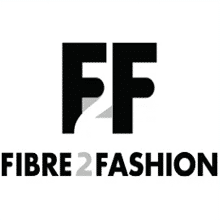There is something intriguing about the current market trends in the international textile business. Everything from production to the market has transformed, and this business posture is not by chance; it is by absolute choice. Textile firms in developing nations, in particular, are demonstrating confidence, which has attracted clients from developed nations. Developing countries like Sri Lanka are committed to creating opportunities for new peace, income, and abundance, ensuring not only the growth of the textile sector in the country but also a boost to the overall economy.
Sri Lanka is fortunate to receive substantial support from developed nations like the United States and the European Union. The apparel categories manufactured in Lanka and exported to other countries include workwear, swimwear, children's wear, sportswear, loungewear, lingerie, and bridal wear. The United States and the United Kingdom have been the largest buyers of Sri Lankan apparel in the past. Sri Lanka's textile sector has also earned a good reputation among multinational retail textile companies, leading to stable and long-term relationships with these high-profile textile companies. Sri Lankan textiles are renowned for their 'Garment without Guilt' philosophy, with working conditions far better than in many other Asian countries. Apparel brands like Marks and Spencer, Victoria's Secrets, Nike, and Ann Taylor are some of the clients in Sri Lanka, utilizing the country's fast-growing textile sector.
The country has maintained a stable growth trajectory in its apparel exports, which were reported to be around US $4.26 billion during the year 2013-14. Sustaining a growth rate of 13 percent is impressive for Lanka, achieved with the recovery of the American and European markets after the economic slowdown. There has also been a significant increase of 20.2 percent in knit apparel exports, while woven apparel exports have shown an increase of 5.1 percent. However, the year 2014 saw an almost continuous decline in export figures, following a steep decline in retail sales in the United States. Fortunately, these challenges have not deterred Lanka from pursuing its ambitious target of generating revenue of US $5 billion from the apparel sector by 2016. The Export Development Board of Lanka is making efforts to help the textile manufacturing and processing sector reach a target of 30 million meters and introduce new forms of technical textiles to increase exports.
Among Lankan clients, the United States is the main importer of textile goods, accounting for 76 percent of total textile exports from Lanka. The EU is Lanka's second most important client, absorbing 36 percent of its exports. The European Commission remains committed to supporting Sri Lanka in its efforts to tackle challenges related to human rights, reconstruction, and reconciliation in the country.
The textile sector is also focusing on fulfilling the local demand, apart from achieving the export targets. At present, the Lankan textile industry utilises over 15 percent of available labour. The labour available in Lanka is also literate and trainable unlike the labour force available in other developed countries like Bangladesh. The Colombo port is one of the most competent ports in the world, following which the transportation of goods is hassle-free. The international companies that have set up plants in Lanka have functioned smoothly so far. Approximately twenty foreign banks have branches in Lanka, which further takes care of the trade and commerce.
The only hurdles that pose threat to the otherwise flourishing textile sector are the excessive dependability on large scale companies, the accusation of violation of human rights by international forums and labour extensive industries.
Out of the total garment factories in Sri Lanka, approximately 26 percent are small scale industries, 51 percent are medium scale industries and remaining 23 percent fall in the category of large scale industries. The large scale industries give employment to approximately 62 percent of the total labour force in textile sector and own about 80 percent of total textile factories with remaining 20 percent owned by foreign companies or under partnership with foreign companies. The factories in Lanka also heavily rely on labour force. Though some manufacturing units have been upgraded with modern technology, but majority of the units are still hesitant to invest in automation.
Another impediment in growth of textile is the volatile situation in Sri Lanka. In past some countries have threatened to withdraw concessionary zero-rated duty tariffs for imports from Sri Lanka, following breach of international human rights laws. Though Lanka has often denied the charges, but activists have accused the country of ethnical cleansing of Tamils. Withdrawal of tariff would make the textile products more expensive and less competitive. This might encourage the brands to shift their focus on cheaper countries. The multinational companies have also been under attack by pro-Tamil campaigners, who say sourcing from Sri Lanka amounts to supporting the Sri Lankan government's actions. These factors have to be dealt with promptly.
These factors can play a spoilsport for the Lankan textile sector by overshadowing the laudable achievements of the textile sector. The Sri Lankan garment industry was the first to establish an eco-factory with help from famous brand Marks & Spencer. Sri Lanka has world's first LEED certified Platinum rated production facility. The Lankan textile manufacturing units have taken several ethical and moral measures to ensure that the working conditions in the factories match the standards set by foreign companies. The textile units in Sri Lanka have strict rules against child labour and forced labour. The units are free of sweatshop practices and do not encourage discrimination of any kind.
Sri Lanka's textile and garment sector is held in highest esteem by the international market, following the highly competent manufacturing units and compliant work force. Textile manufacturing units from Australia, Germany, Hong Kong, Indonesia, United Kingdom and United States have set up industries in Sri Lanka. The business is flourishing as of now, but the government must take drastic steps to change the perception of the world with regard to human right issue. With stable political environment, investment friendly government policies, technology savvy labour force and strategic shipping lanes, the overall scene for Sri Lankan textile can be greatly improved.
References:
1. Wikipedia.com
2. Srilankabusiness.com
3. Sljol.info
4. Academia.edu
5. Ec.europa.eu
6. Dailynews.lk
7. Ethicalcorp.com








Comments